How an IAS Officer Helped Set Up India’s First Transgender-Run Milk Cooperative
IAS Sandeep Nanduri from Tamil Nadu helped the transgender community start dairy farming for a sustainable livelihood amid the global pandemic.
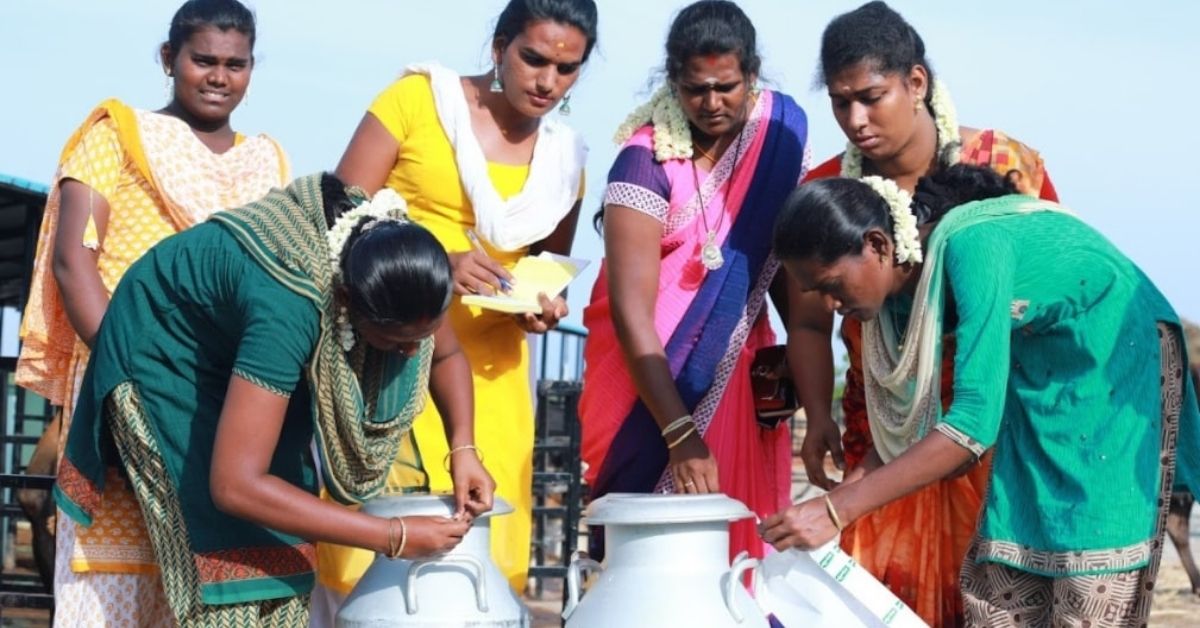
The last time The Better India spoke to Thoothukudi District Collector Sandeep Nanduri, he was busy monitoring the activities of Cafe Able run by differently-abled people. A few days after launching the cafe in August last year, he told us why one-time donations are not going to change things.
“There is a dire need to create sustainable livelihoods instead of giving neglected sections of society false promises or money. The cafe will provide stable incomes and a life of dignity to the differently-abled,” he said. Read the entire story here.
A year later and Sandeep’s ideology of helping the needy has not changed one bit. Four months ago, he set up a milk cooperative society in Kovilpatti, Tamil Nadu, which is run by 30 transgenders.
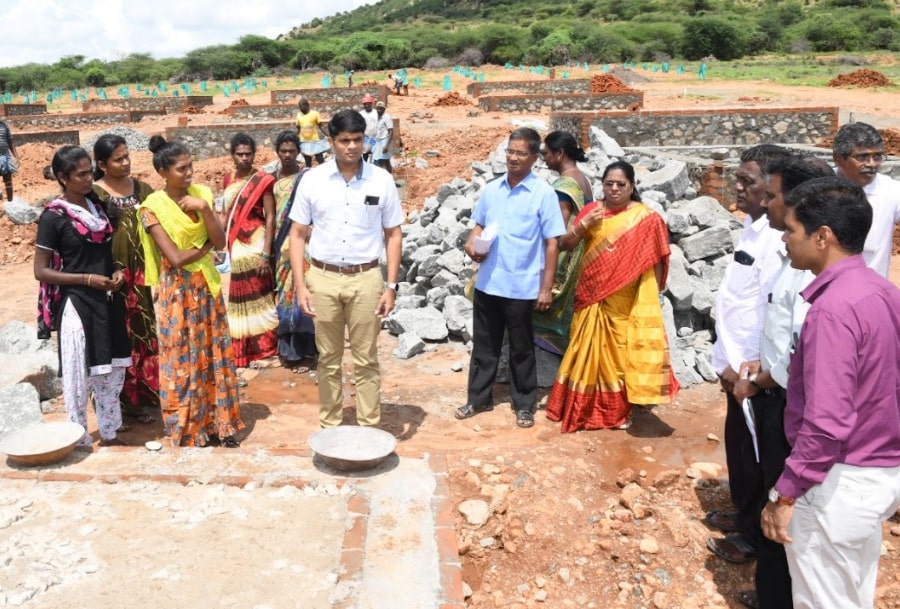
Manthithope Transgenders’ Milk Producers’ Cooperative Society has a turnover of Rs 3 lakhs so far, and each person earns Rs 8,000 per month.
Life of dignity
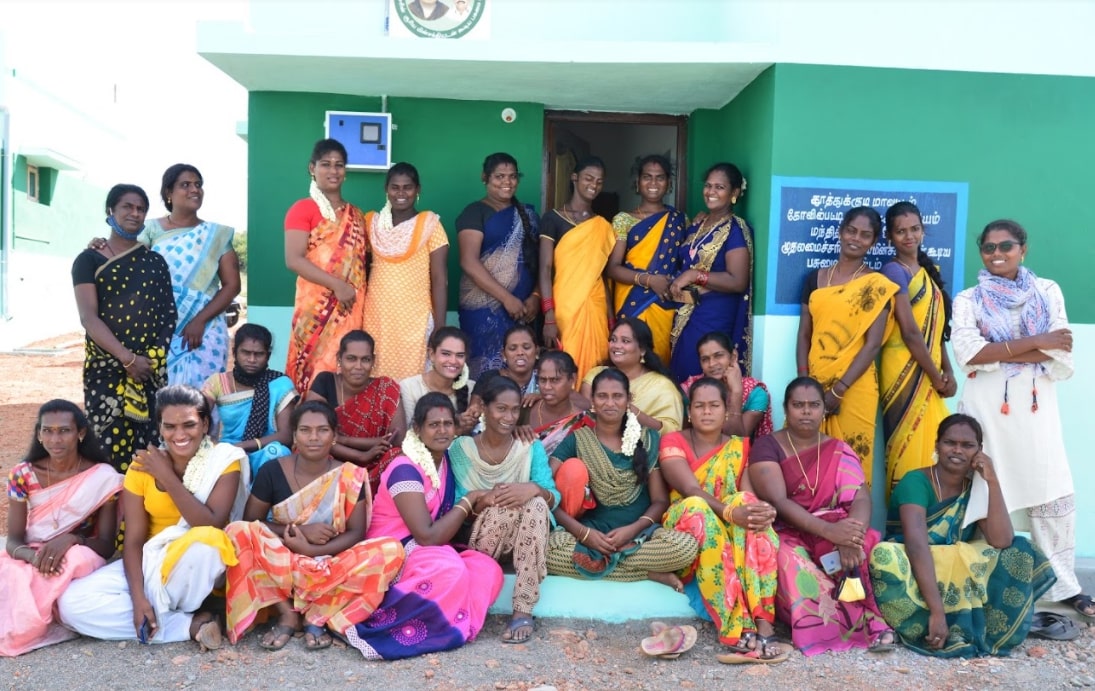
There are around 250 transgenders in the district and most of them do not have any source of income, house or documents to avail government benefits. To solve the community’s problem, Trans Rights Now founder and activist, Grace Banu, approached the district administration.
“While discussing their housing needs, we learnt about other issues that often go unnoticed. Most of them are uneducated and so they end up begging or engaging in commercial sex work and other such odd jobs that do not guarantee a stable income. After many discussions, Grace and others agreed on dairy farming,” Sandeep adds.
The district administration selected 30 transgenders and roped in the Animal Husbandry Department to impart training on dairy farming. To purchase 30 cows (one for each member), the community took a loan from the Central Cooperative Bank.
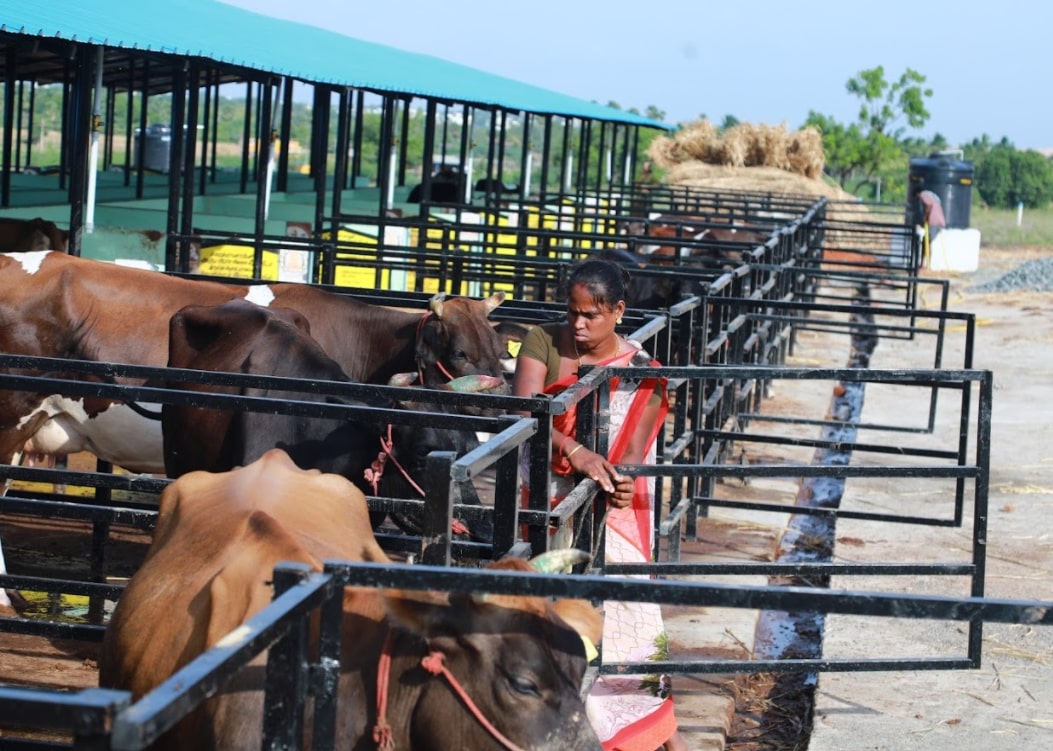
Realising that people may refrain from buying milk from the community due to pre-existing stigmas, the district administration helped the co-operative tie up with Aavin, a milk brand.
The members begin their day early morning around 6 am in the cow shed provided by the administration. After giving all the cows a bath and food, they milk them. Two hours later, a member of Aavin comes and collects the milk.
“At Rs 33 per litre, we sell a total of 30 litres of milk from 30 cows daily. The money collected is then credited to the society’s bank account and divided amongst us. I am glad I am able to understand financial literacy like savings and crediting salaries by heading the co-operative,” says Poomika, who has studied till class 7.
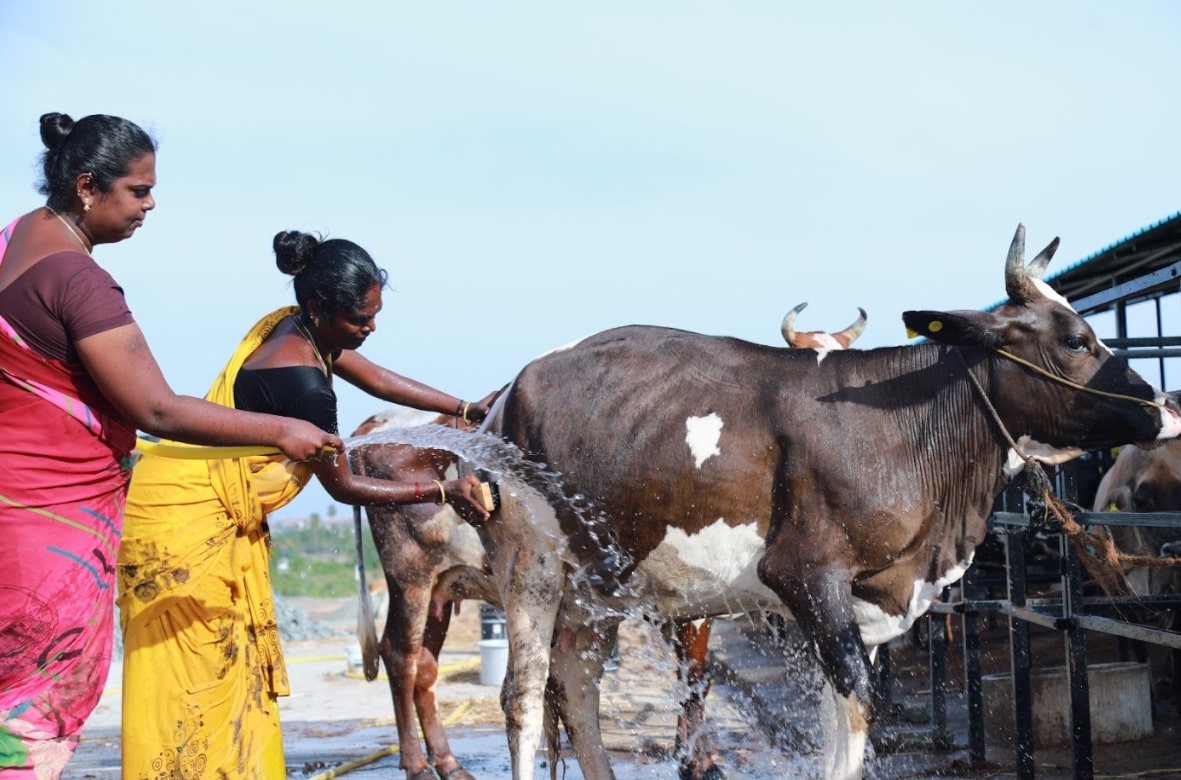
Before setting up this co-op, Poomika, like many rural transgender people, used to beg in trains and buses.
“I have faced discrimination and have been ill-treated all my life because of who I am. It is hard for people like me to survive in a society that provides inhuman treatment and leaves us with no option but to beg. Though we didn’t know anything about dairy farming, Sandeep sir helped us a lot. He even visits the farm every week to see how we are progressing. This is probably the first time when authorities have actively taken steps to mitigate the biases. I really hope the initiative sets an example for others,” she adds.
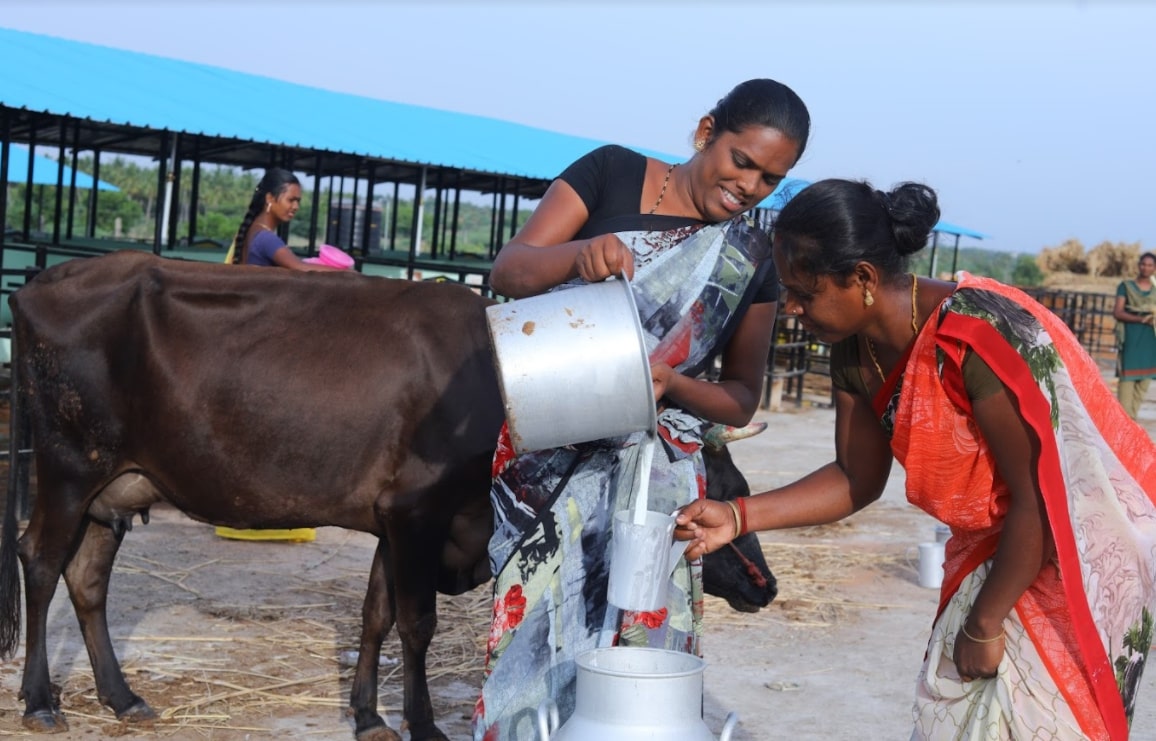
Poomika mentions that within just four months, every member has learnt a lot and is more confident in running a business. Their enthusiasm has translated into an expansion plan.
Once everyone gets their second cow, they hope to open a milk parlour outside their workplace and even start processing value-added products from milk like sweets.
Edited by Yoshita Rao
If you found our stories insightful, informative, or even just enjoyable, we invite you to consider making a voluntary payment to support the work we do at The Better India. Your contribution helps us continue producing quality content that educates, inspires, and drives positive change.
Choose one of the payment options below for your contribution-
By paying for the stories you value, you directly contribute to sustaining our efforts focused on making a difference in the world. Together, let’s ensure that impactful stories continue to be told and shared, enriching lives and communities alike.
Thank you for your support. Here are some frequently asked questions you might find helpful to know why you are contributing?


This story made me
-
97
-
121
-
89
-
167













